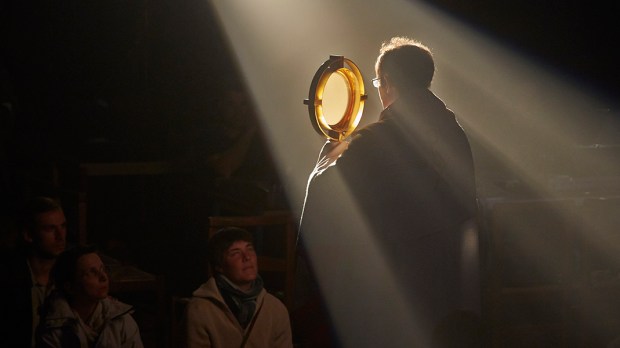When we love something, we want to express our delight and demonstrate our joy. This is the essence of adoration. Adoration holds a prime place in our relationship with Christ. St. Paul speaks of “the Day when the Lord Jesus comes” as a day when Jesus will be “adored by all who have believed” (2 Thes 1:10).
However, we find it difficult to pray when faced with our own limitations, weaknesses, and imperfections. We’re tempted to withdraw and shrink into ourselves. But it is precisely that awareness which fuels adoration. The Catechism says that adoration “is the first attitude of man acknowledging that he is a creature before his Creator” (2628). For some providential reason, my Creator decided to make me with my limitation. But I must not make the mistake of presuming that my limitation is my measure. No—my limitation leads me to my measure … to Something greater than myself. As Pope Benedict XVI put it, “adoration is the recognition of God as our true measure.”
Accepting my limitation and offering it as a gift to God is the chief act of adoration. What could be easier! “The sense of adoration causes the soul to plunge rapturously into the abyss of its nothingness, and that is the very thing it offers to Love” (A. Sertillanges).
And we need adoration because “only adoration can reach beyond all contradictions and far beyond all wisdom” (M.-D. Molinié). It is adoration that prevents us from caving in to the pressures and falsehoods of the world. Adoration safeguards us from delusions. “Adoration is the road that leads us to ourselves” (A. Delp).
Bishop Massimo Camisasca assures us that “adoration is the acknowledgement that God is greater than any human measure, wiser than our greatest wisdom, truer than our greatest truth, more beautiful than our greatest beauty, holier than our greatest holiness.” Yet God wants to share that wisdom, truth, beauty, and holiness with all those who adore the One who has loved us into existence.
~
Follow Fr. Cameron’s series on prayer here.
See the earlier pieces:



